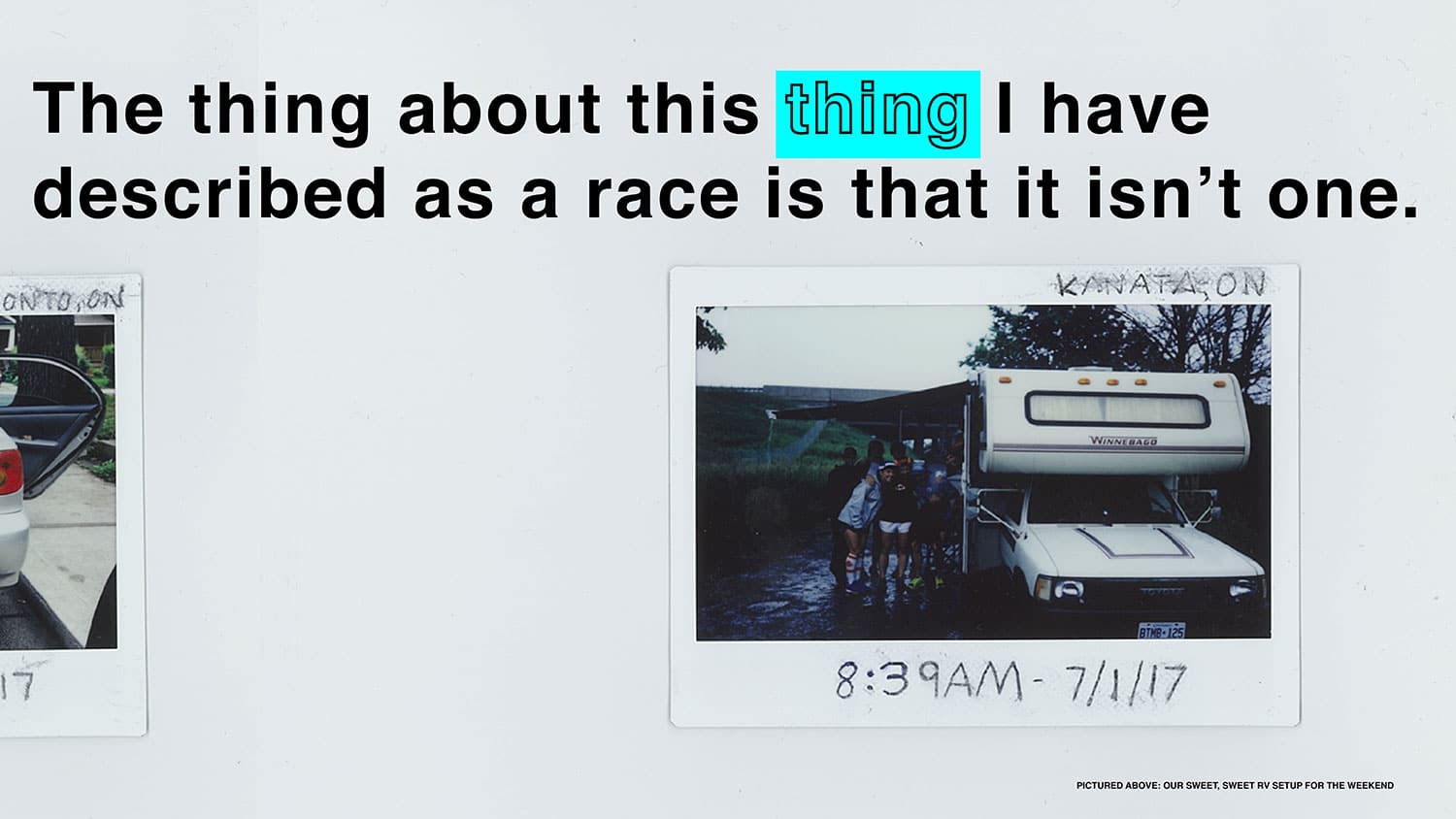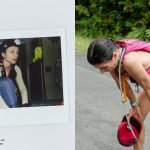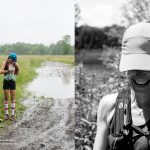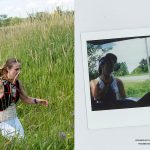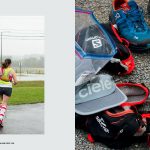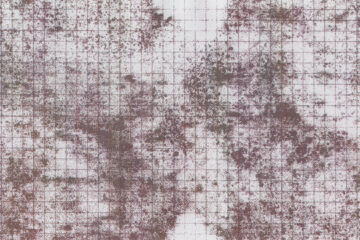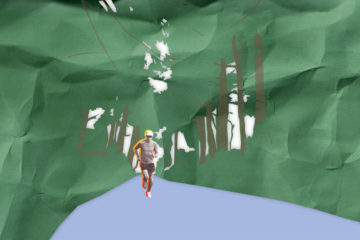The thing about this thing I have described as a race is that it isn’t one.
On July 1st at 7:00AM eleven women and a support crew began a 328km relay across the Rideau Trail from Ottawa to Kingston. The relay would extend through the night and well into the following afternoon for the next 35 hours (34:40 if I’m being specific, I should be specific). I was corrected very early on by one of the runners that this was, in fact, not a race, but a relay – this is an important detail to the story. There were no other teams, no volunteers handing out gatorade or orange slices, and no race organizers. The relay in its entirety was organized by the team in order to achieve a goal they had set for themselves alone: to record the fastest known completion time of the Rideau Trail start to finish. These women: mothers, nurses, midwives, teachers, coaches, physiotherapists—spent their long weekend running through a flooded, tick-infested trail because they felt it was important—or they just felt something—and so did I.
I joined the team in their sweet 90s Winnebago RV for the duration of the run to document it because I think it’s important. In sport photography, specifically women’s sport photography you rarely see the ugly, the dirty, the difficult, the painful, gritty or gross. In contrast, sport photography of women trends toward depicting the beautiful (in that sense of the word), happy, and clean—immaculate, really. So when I got the chance to tag along with a team of 11 badass women running through muddy trails for a weekend, I jumped at it.
To reiterate, I think it is important to showcase and archive women doing hard things, simply because they can, and they do.
–
I spent the latter half of the relay asking some of the women while they rested just why they were doing this. There was, as I suspected, no clear answer. As every response was more dreamy eyed contemplation than explanation I was left thinking of Leslie Jamison’s essay The Immortal Horizon in her book The Empathy Exams where she deconstructs the Barkley Marathons in search of the reasoning behind it’s madness.
The Barkley Marathons are an approximately 60 mile race (the distance is intentionally vague) that is designed to be a difficult (if not completely unfinishable) slog through the brutal terrain of northern Tennessee. Barkley was lovingly described by its creator, Gary Cantrell (also known Lazarus Lake or just Laz), as “The Race That Eats It’s Young”. The essay follows Jamison’s train of thought as she struggles to understand why the runners have committed themselves to the nearly unrunnable. She tried, as I did with Rideau, to answer the futile question: why are they doing this? She and I got a similar response.
“Whenever I pose the question directly, runners reply ironically: I’m a masochist: I need somewhere to put my craziness; type A from birth; etc. I begin to understand that joking about this question is not an evasion but rather an intrinsic part of answering it. Nobody has to answer this question seriously because they are already answering it seriously—with their bodies and their willpower and their pain … This is purpose by implication rather than direct articulation. Laz says: “No one has to ask them why they’re out here; they all know.”
While I don’t think the Rideau Trail is as masochistic of a pursuit as the Barkley Marathons, I do see a common thread. The proof of why these women are running, is that they are running. This circular tautology is frustrating (especially to those who don’t run), but to me, and I would suspect to many others, it makes sense. Sometimes it is that simple. I really believe that.
words by Sydney Allen-Ash @from_syd


